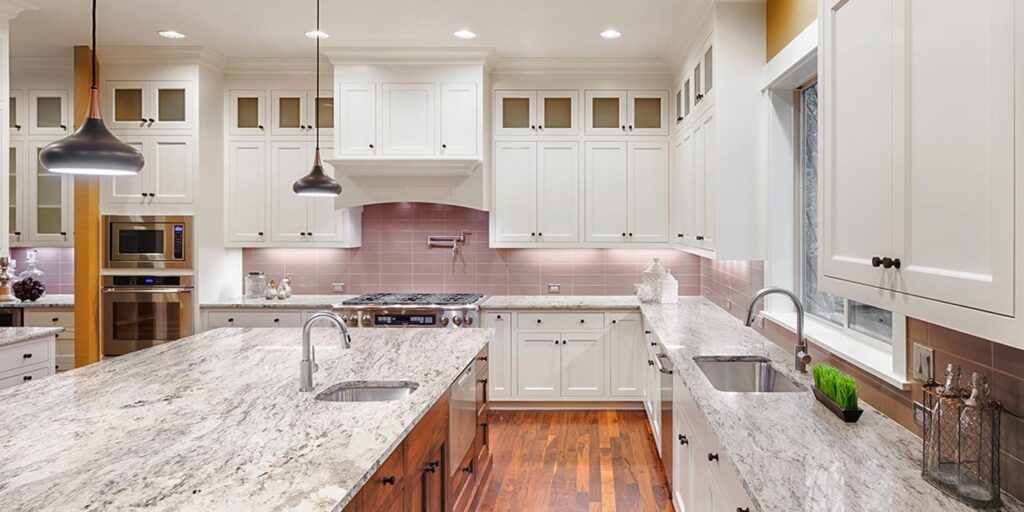
Today, quartz is also a close competitor for granite as a material for kitchen countertops due to its wide and varied availability. Both materials have beautiful designs, are amply durable and offer longevity as a countertop material. However, both quartz and granite are completely different from each other. In this article, we are highlighting these major differences.
Composition: Granite vs Quartz
Granite is a completely naturally occurring stone that falls in the category of igneous rocks. With a natural composition of mica, silica, feldspar, and quartz, it is a strong and beautiful rock. They are usually derived from the quarries after they are cut into slabs for ease of use.
On the other hand, quartz is a man-made stone. Various types of stones are crushed and brought to a grain-like stage. Then, these crushed-up stones are combined using artificial resin and processed into readymade slabs for installation.
Appearance: Granite vs Quartz
Since granite is a naturally occurring stone and is formed after multiple layers are pressed, it forms beautiful freckles and veins as part of its primary design. Moreover, granite has a variety of colors including white, black, brown, green, and much more. The designs and patterns of granite can be completely unpredictable and imperfections are a common thing.
On the flip side, quartz has a more consistent pattern or design due to manipulations during manufacturing. Artificial color pigments are added to the quartz slabs hence the reason that they are available in unique colors. Natural stone designs can also be imitated on quartz slabs during manufacturing.
Pricing: Granite vs Quartz
The pricing of both granite and quartz cannot be specifically differentiated unless the size of the slab, design, and rarity are judged. Every factor is important for determining the price and every factor is different for different slab variants.
Durability: Granite vs Quartz
Granite is a porous rock, which means liquids can easily seep through the pores if left untouched. This can cause permanent stains on the slab so the fabricators that design and polish the granite slabs, coat it with a protective layer of polish so that liquids do not seep through and damage the rocks making maintenance easier.
On the other hand, quartz does not allow water to seep through it. It sits on the surface which can also cause long-term stains and hence should be maintained regularly.
Hence, if quartz is your choice for kitchen countertops, then you must go with Casa Granite quartz countertops, which are known for their best prices, beauty and durability.







